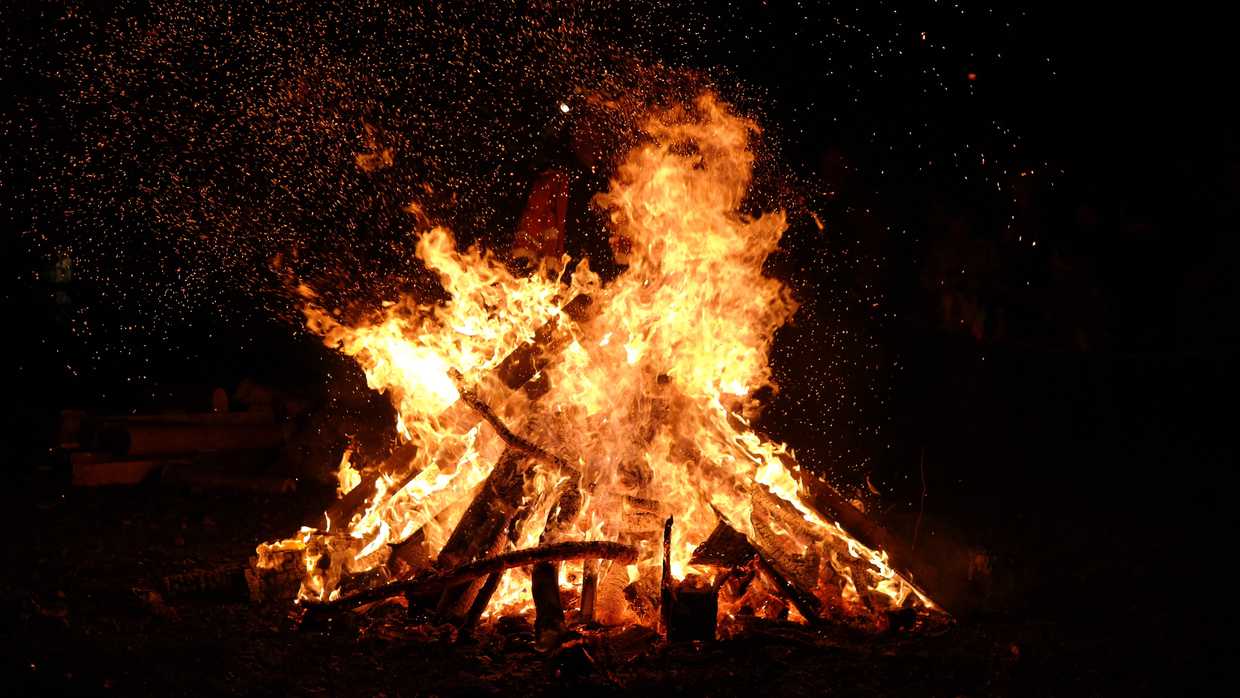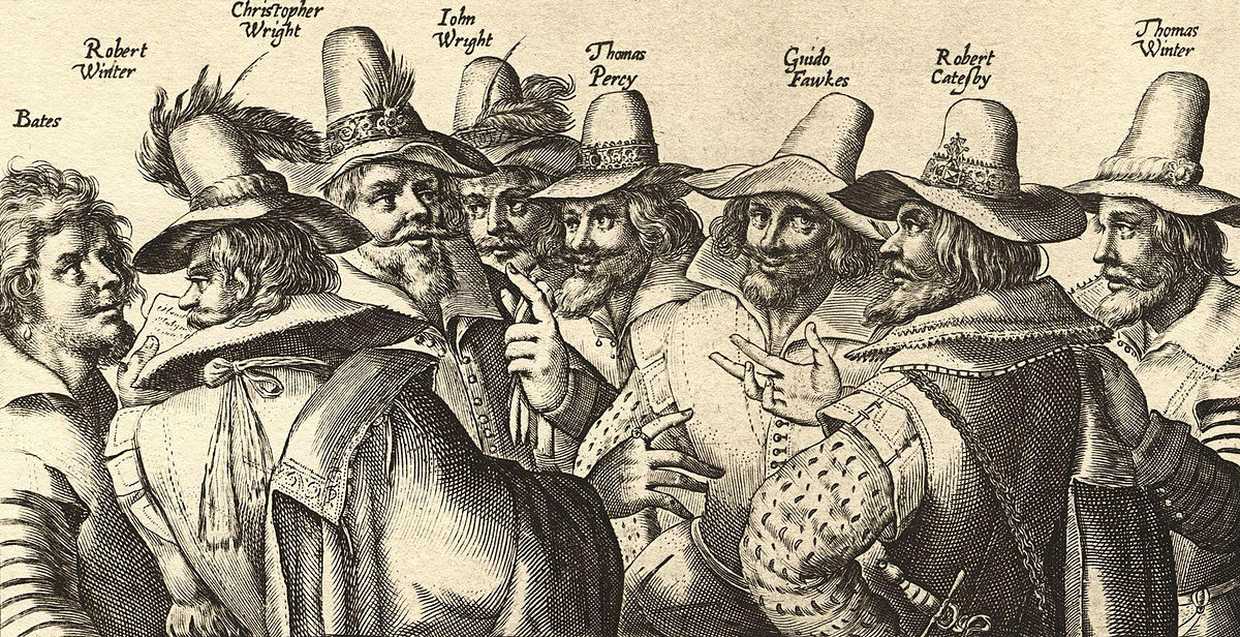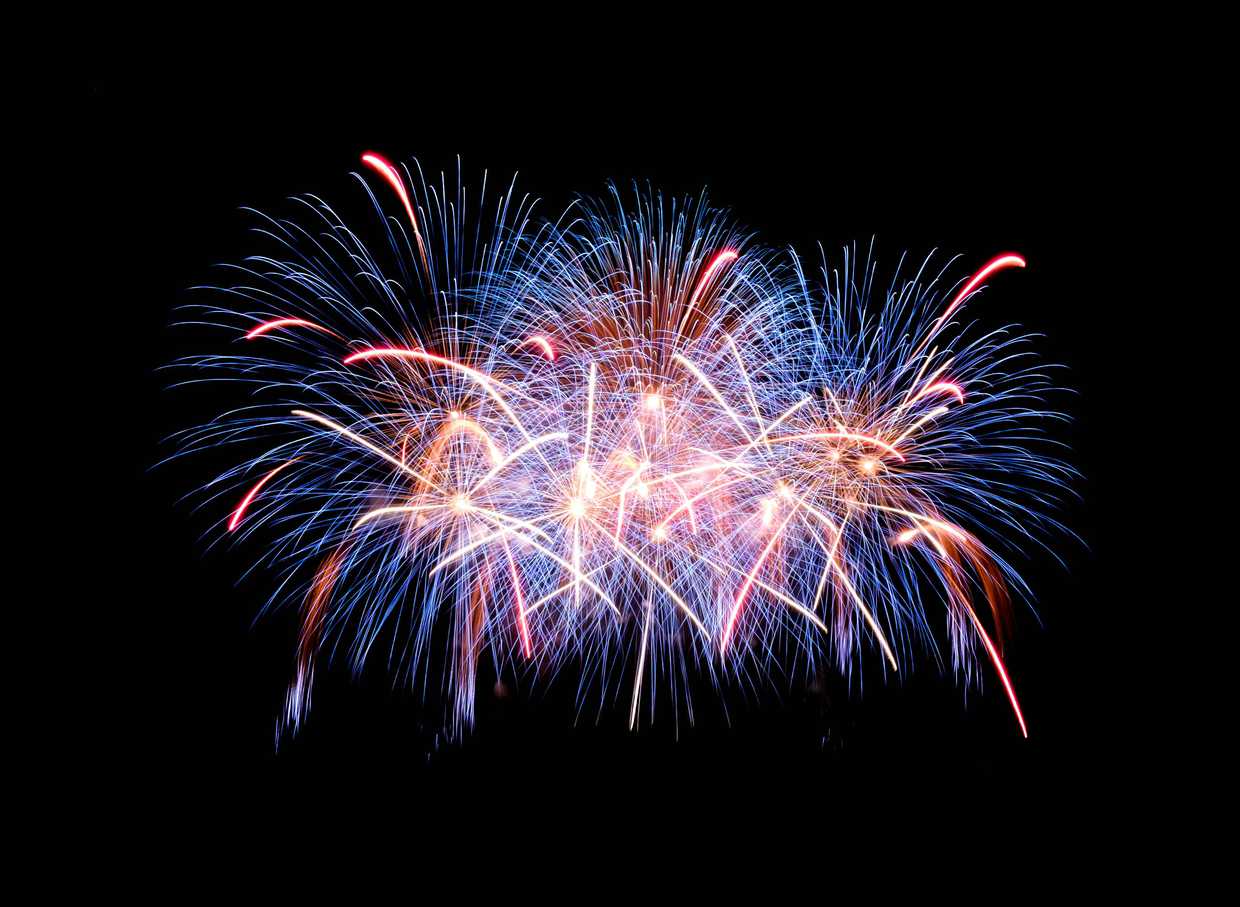Bonfire Night

A bonfire
Have you seen a lot of fireworks in the last few days? Are you wondering why?
The reason is that on the 5th of November each year, people all across Britain light fireworks and big fires – bonfires – to celebrate Guy Fawkes night, or as it’s more generally known, Bonfire Night or Firework Night. If the 5th of November falls on a weekday, most of the official celebrations take place on the weekends before and after, but there will also be some on the 5th itself. The sale of fireworks in the UK is restricted to the few weeks leading up to Guy Fawkes night, so many people also buy fireworks and have small displays in their gardens around this time of year.

Guy Fawkes and the other who made the "Gunpowder plot"
So why do we celebrate Guy Fawkes night? Back in 1605, a man called Guy Fawkes was part of a plan to blow up the Houses of Parliament using gunpowder. Luckily, the gunpowder was discovered and Parliament survived – but it was unlucky for Guy Fawkes, who was sent to prison and executed. It’s probably the closest thing Britain has to a national day or an independence day but unfortunately it isn’t a public holiday!

Fireworks
What can you expect at a typical fireworks event? If there’s a bonfire, it’s lit and people gather round it to keep warm and watch the flames. Sometimes an effigy - model - of Guy Fawkes is burnt, although this is becoming less usual. The firework display lasts around 20 minutes or half an hour and is often set to music. At bigger events there are usually food stalls selling things like hot dogs and jacket potatoes, and fairground rides such as carousels.
It is estimated that around 20 million people will watch a fireworks display at this time, and there are many events across the country. If you decide to go, make sure to wrap up warm – even when there’s a bonfire, it can get very chilly! And wear sturdy shoes, because the ground usually gets very muddy.
Enjoy the fireworks!
This blog post was written by Laura, a trainer at The London School of English.
We also have an advanced-proficiency level blog post about the history of Bonfire Night.
Glossary
- firework (noun) – a small explosive device which produces brightly coloured patterns or loud noises when it explodes
- bonfire (noun) – a large, controlled outdoor fire
- weekday (noun) – Monday, Tuesday, Wednesday, Thursday or Friday
- restricted (adjective) – limited (especially by rules or laws)
- blow up (phrasal verb) – to make something explode
- gunpowder (noun) – an explosive mixture used for bombs and fireworks
- executed (verb) – killed by the government
- flame (noun) – part of the fire
- effigy (noun) – a model which looks like a specific person
- set to music (phrase) – takes place in time to music
- fairground ride (noun) – machine which people travel on for entertainment
- carousel (noun) – fairground ride where people are moved round on wooden or plastic animals or vehicles
- wrap up warm (phrase) – wear warm clothes such as hats, scarves and gloves
- sturdy (adjective) – strong, not delicate
- muddy (adjective) – dirty, covered with wet earth
Post your questions and comments:
Why study at The London School of English?
- Rated “Excellent” based on over 1750 independent client reviews
Over 100 years’ experience
Tailored training delivers clear results
Memorable experiences in London and online










